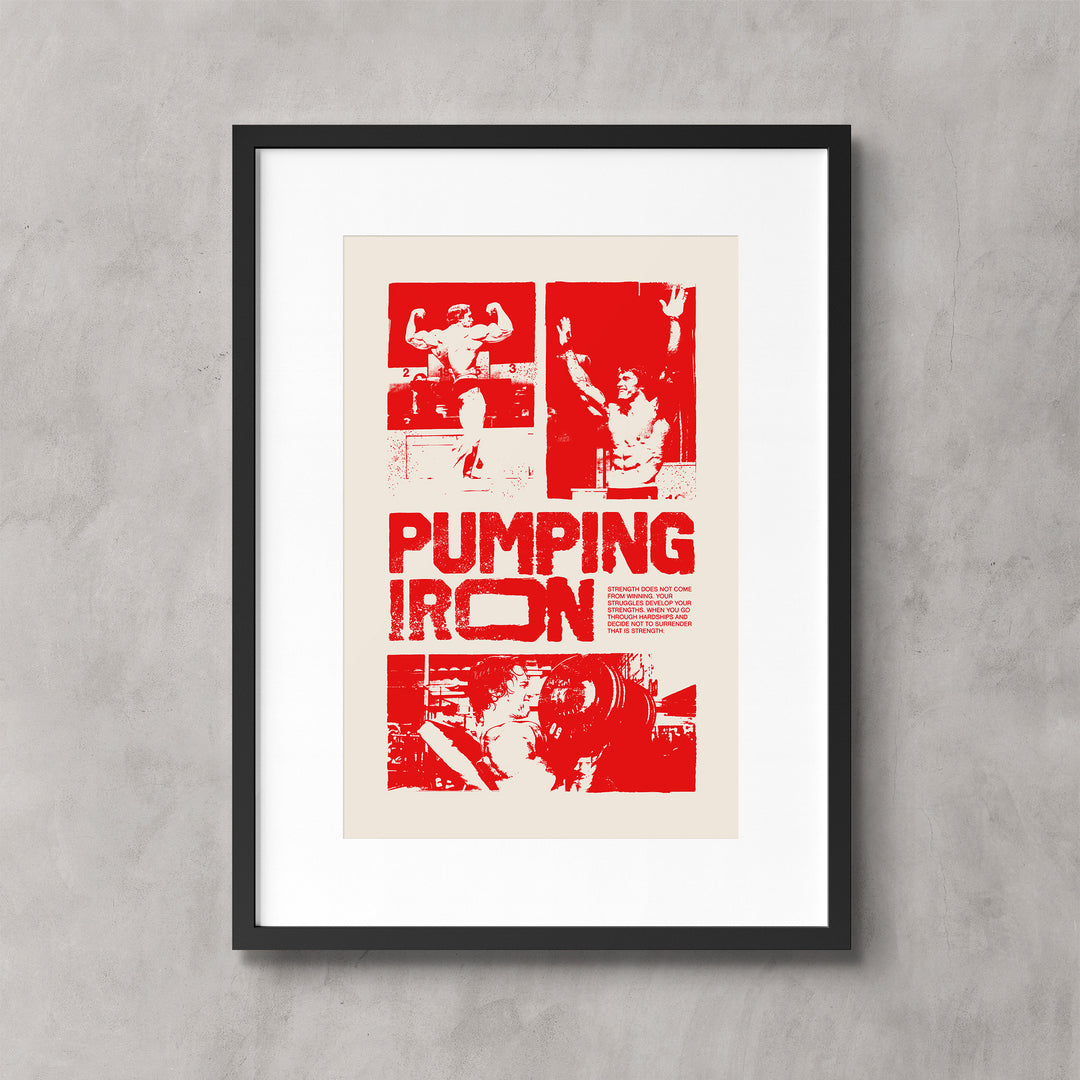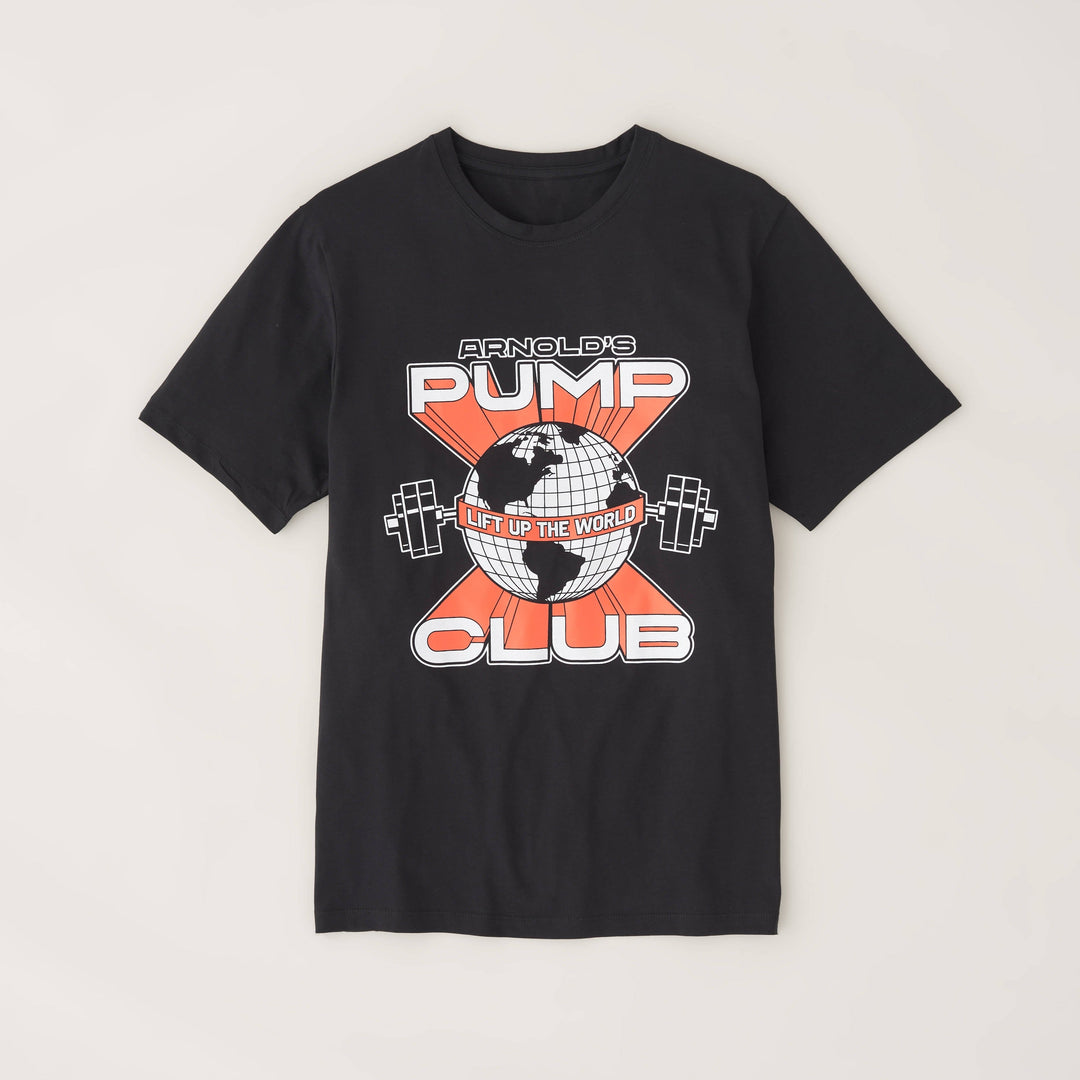Welcome to the positive corner of the internet. Every weekday, we make sense of the confusing world of wellness by analyzing the headlines, simplifying the latest research, and offering quick tips designed to make you healthier in less than 5 minutes. If you were forwarded this message, you can get the free daily email here.
Today’s Health Upgrade
The protective benefits of going heavy
Does creatine make you bloated?
The sight and sound of energy
Arnold’s Podcast
Want more stories from Arnold? Every day, Arnold’s Pump Club Podcast opens with a story, perspective, and wisdom from Arnold that you won’t find in the newsletter. And, you’ll hear a recap of the day’s items. You can subscribe on Apple, Spotify, Google, or wherever you listen to podcasts.
The Protective Benefits Of Lifting Heavy Weight
You might be worried that too much weight leads to injury. But science tells a different story.
A recent study found heavier exercise loads are more effective for increasing bone mineral density than lighter loads.
While many believe heavier weights put more strain on your body, there’s a big difference between doing something irresponsibly and naturally progressing your body with a great program. If you learn how to perform exercises correctly — and gradually get stronger over time — using heavier weights benefits your body beyond building muscle and burning fat.
The new research (along with other studies) suggests your bones compensate for the added pressure by getting stronger. Most types of exercise strain bones, leading them to grow. This is why baseball players have thicker, larger bones in their throwing arm than their non-throwing arm. Conversely, this is why astronauts lose an astonishing 1% of their bone density every month without the pull of gravity pushing on their skeletons.
This study emphasizes that weight lifting is an effective way to support bone density, that lifting weights causes greater benefits to bone health, and that it can help prevent osteoporosis and osteopenia.
Does Creatine Make You Bloated?
Have you been avoiding creatine because you heard it makes you bloated? Then, you’ll want to pay extra attention to a recent meta-analysis.
Scientists analyzed 12 randomized controlled trials and found that creatine decreases fat mass.
In particular, the studies reviewed people performing resistance training for as little as four weeks and as long as four months. The research compared people who lifted weights and took creatine to those who did similar workouts but did not use creatine. Across the studies, people taking creatine reduced their body fat percentage by 1.2 percent and didn’t gain any additional fat mass.
Research continues to find that one of the biggest misunderstandings about creatine is how it interacts with your muscles.
Creatine pulls more water into your muscle cells, meaning you have hydrated, healthier muscles — not bloating. And this relates to another myth about creatine causing dehydration. When researchers looked at hydration, they found that people who used creatine had less cramping, heat illness, dehydration, muscle tightness, and muscle strains than those who took a placebo sports drink.
Scientists believe creatine helps you lose body fat by helping you increase lean mass, meaning you’re gaining muscle without adding any fat. It might also help you exercise harder — which could result in burning more calories and supporting other metabolic processes.
If you want to take creatine, it’s one of the most researched ingredients, with thousands of studies suggesting effectiveness and safety. But — the key is making sure you’re taking a high-quality product. Your body naturally produces creatine, and it’s found in small amounts in food, but in supplements, it’s engineered in a lab. However, not all labs follow strict pharmaceutical principles.
When researchers analyzed 175 other creatine brands, they found that 88% used a form of creatine with limited or no evidence of effectiveness or safety.
That’s why we recommend Momentous Creatine. Not only is Momentous NSF Certified and Informed Sport Certifed, but they also use Creapure Creatine, which has the strictest lab standards to ensure all creatine is at least 99.9% pure.
If you want to try Momentous creatine, all members of the positive corner of the internet receive 20% OFF when they use the code “PUMPCLUB.”
The Sight and Sound of Energy
Caffeine isn’t the only way to power up when you need more energy.
Research suggests that the right music — or even looking at a specific color — can boost your brain and body inside and outside the gym.
You might love listening to music during your workouts, but music isn’t just a great way to drown out what’s happening in your gym. Fast-paced music, typically with a tempo between 170 to 180 beats per minute, increases your energy levels. And while it might get some odd looks in the gym (or at your job), singing or tapping along with your music can boost your energy even more.
And it’s not just energy. Other studies suggest that music can reduce your perception of fatigue, improve your mood, or make exercise more enjoyable. For what it’s worth, studies found that a slightly lower tempo, anything from 120 to 150 beats per minute, is best for weight lifting.
If music isn’t your thing, you might want to add a little more red to your life. According to research, looking at the color red might make your muscles move faster and work harder. However, the extra boost isn’t likely to last long and is more of a short-term jolt.
—
Publisher: Arnold Schwarzenegger
Editors-in-chief: Adam Bornstein and Daniel Ketchell






















